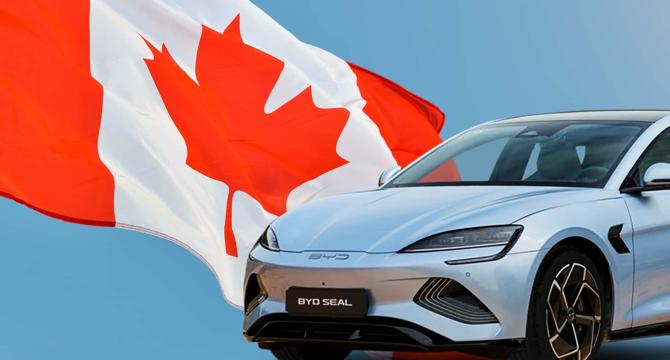Insideevs
1M
67

Image Credit: Insideevs
Why Chinese EVs Could Tempt Canada As America's Tariff War Rages On
- Canada has a 100% tariff on Chinese-made EVs, while the U.S. has a 25% tariff on Canadian-made cars, with exceptions for select automakers.
- The strained U.S.-Canada relationship has prompted Canada to consider embracing the Chinese EV sector amidst trade tensions.
- Canada's potential pivot to China could lead to increased imports of Chinese EVs and PHEVs due to changing trade dynamics.
- However, choosing Chinese cars over domestic production investments could harm Canada's automotive industry.
- Canada's current car industry is aligned with U.S.-based ventures, making a shift to Chinese imports challenging.
- While tariffs pose risks for Canada, retaliatory actions could further harm both countries' automotive sectors.
- The shifting dynamics between Canada and the U.S., including tariffs and trade policies, create uncertainty for businesses and governments.
- The Trump administration's tariffs and trade threats have escalated tensions and fueled discussions about divesting from U.S. ties.
- With the U.S. trade actions and rhetoric, the appeal of Chinese EVs in Canada is growing, despite current market conditions.
- As Canada navigates trade complexities, the potential for Chinese EVs to enter its market poses both challenges and opportunities.
Read Full Article
4 Likes
For uninterrupted reading, download the app